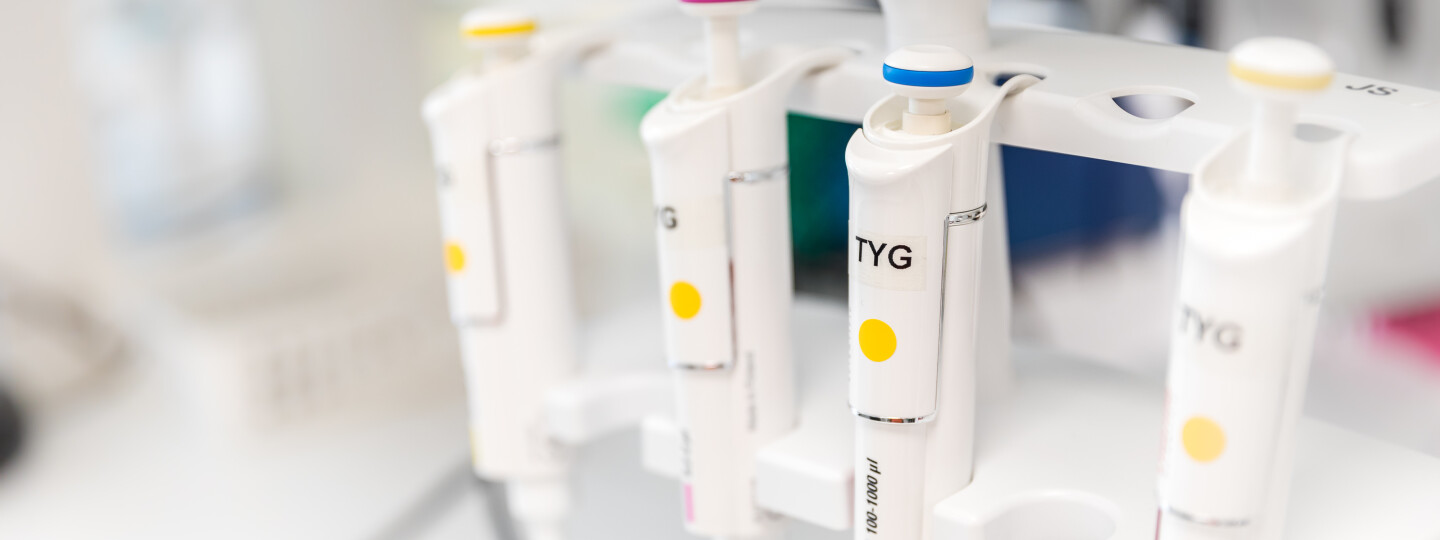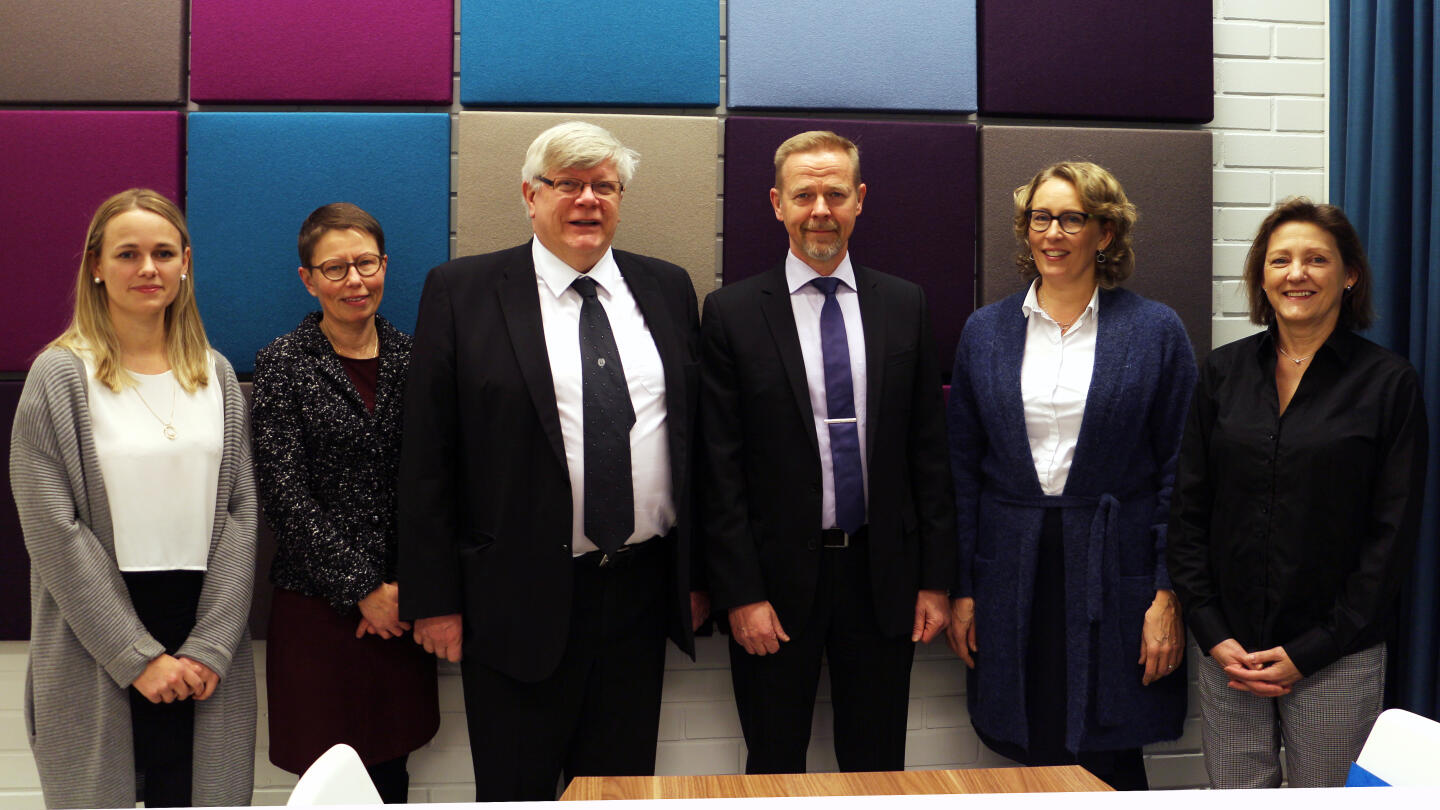In 2019, the University of Turku launched a new doctoral training in collaboration with partners from the drug industry. A major part of the training is carried out in an industrial environment. The training also includes postgraduate studies and academic secondments in the University’s research groups. The training educates experts specialised in industrial research and product development.
The University of Turku and Orion Corporation made a framework agreement in 2018 to launch Industrial doctoral training (iPhD). At the University of Turku, the training is carried out by the Drug Research Doctoral Programme (DRDP). DRDP’s task is to organise systematic, high-quality and directed doctoral training with a controlled duration. As for the corporations, they offer the doctoral candidates interesting assignments in corporate research and product development projects.
– Through this collaboration, the doctoral candidates will receive valuable experience for their future careers by working in the interface of academic and industrial drug research environments, said Associate Professor Eriika Savontaus from the University of Turku when the framework agreement was made in 2018.
– The employers in the drug industry expect their employees to have increasingly more profound international and academic expertise. The University of Turku responds to this demand by investing in the entire drug development study path. The first part is a Bachelor’s degree programme taught in Finnish, after which the student continues to an international Master’s degree programme, and finally to a doctoral programme, adds Professor Ullamari Pesonen who is the Vice Director in the Board of DRDP and in charge of the iPhD training and its development.
Basic Academic Research and Industrial Projects Come Together Seamlessly
In two years, the framework agreement has advanced from plans to concrete action, and the first dissertations from this training can be expected in less than no time.
The first doctoral candidates of the iPhD track in the Drug Research Doctoral Programme started their studies in the beginning of 2019. One of the doctoral candidates who started back then is Tiina Leino. Her dissertation is almost finished, and her dissertation defence is expected to take place in late autumn 2020. Three out of the four sub-studies of her dissertation have been published and the last one has already been submitted for publication. Leino’s dissertation is supervised by Professor Ullamari Pesonen and Professor Antti Haapalinna from Orion.
– The supervising has been excellent, and it has been rewarding to receive it from both the University and the industry, rejoices Leino.
Leino’s dissertation describes the use of a novel pain drug for spinal analgesia. The research is mainly pre-clinical testing, which is meant to benefit Orion in developing drug molecules for clinical use later on.
– Postgraduate studies in the iPhD training enable the combination of academic research and industrial project research extremely well, sums up Leino.
– The whole training is well designed. The aims, schedule and supervision work well. However, combining paid employment and postgraduate studies requires creativity. The paid employment must be done first, and then there is time for the dissertation work, says Leino.
The data for the research has been collected during Leino’s paid employment at Orion. Also other data and resources from Orion are available for use. The reasoning and writing process are nonetheless the essence of research, both which Leino enjoys. Much like other doctoral programmes, also the iPhD training in DRDP includes academic studies. For Leino, planning her studies has been an embarrassment of riches.
– The course selection is versatile and extensive. It has been great to be able to benefit from it, says Leino.
On the other hand, Leino has been able to transfer the training obtained while working in the industry into her academic studies. This way, the previously obtained expertise is put to good use. Leino has found a sense of communality and a possibility to network with other doctoral candidates, for example, in the DRDP Annual Meetings.
– In these meetings, I have been able to share career development tips to other doctoral candidates from an industrial point of view, tells Leino.
Leino warmly recommends the iPhD training.
– Sharing knowledge benefits the employer as well as colleagues, but also the University, summarises Leino.
More Extensive Collaboration with the Industry
In the application round of spring 2020, Giancarlo Méndez Agreda was accepted in the training. He is the first doctoral candidate to complete his dissertation in a corporation other than Orion. The aim of the training is to extend the education co-operation to cover more corporations alongside Orion.
Méndez Agreda has studied biochemistry and pharmacy in his home country Peru. He came to the University of Turku because of the Drug Discovery and Development programme, from which he graduated as a Master of Science in 2018. Finding employment after graduation was easy, and the excellent skills Méndez Agreda had obtained in the Finnish language contributed to it as well.
At the moment, Méndez Agreda is employed in a Turku-based drug development company DelSiTech, where he also works on his dissertation. DelSiTech is specialised in administrating drugs with silica drug delivery technology.
– Although DelSiTech requires me to have a good knowledge of Finnish, there is flexibility to switch between English and Finnish, mentions Méndez Agreda.
Méndez Agreda heard about the iPhD training from the Research Director of DelSiTech, Dr. Mika Jokinen who recommended applying.
– I had already planned on writing a dissertation, but had not really planned on starting it this soon after graduating, ponders Méndez Agreda.
Méndez Agreda’s dissertation is supervised by Mika Jokinen and Professor of Industrial Physics Jarno Salonen from the University of Turku. This way, the iPhD training expands within the University from the Faculty of Medicine to the Faculty of Science and Engineering.
Méndez Agreda’s dissertation discusses the administration of parenteral drug with silica composite technology. There is already plenty of product development relating to the field in DelSiTech, and the topic is also seamlessly connected to the University’s strong research in materials science and biomaterials. The data and its processing are useful to both the company and the research project.
– This is a so-called win-win situation, sums up Méndez Agreda.
In the studies included in the doctoral degree, Méndez Agreda aims to achieve a deep understanding in technology, particularly in materials technology. More precise planning of his studies is currently underway, but it seems that his studies can be flexibly completed while working.
– My dissertation will most likely be finished in autumn 2023, estimates Méndez Agreda.
The Drug Research Doctoral Programme DRDP trains experts in drug development and drug research to work in research and expert tasks. The doctors from the programme will work in research and managerial positions in drug and biotechnology corporations, authoritative duties in drug and chemicals control, and in academic research and teaching positions.
Text: Tilda Junko
Translation: Maija Siukonen


